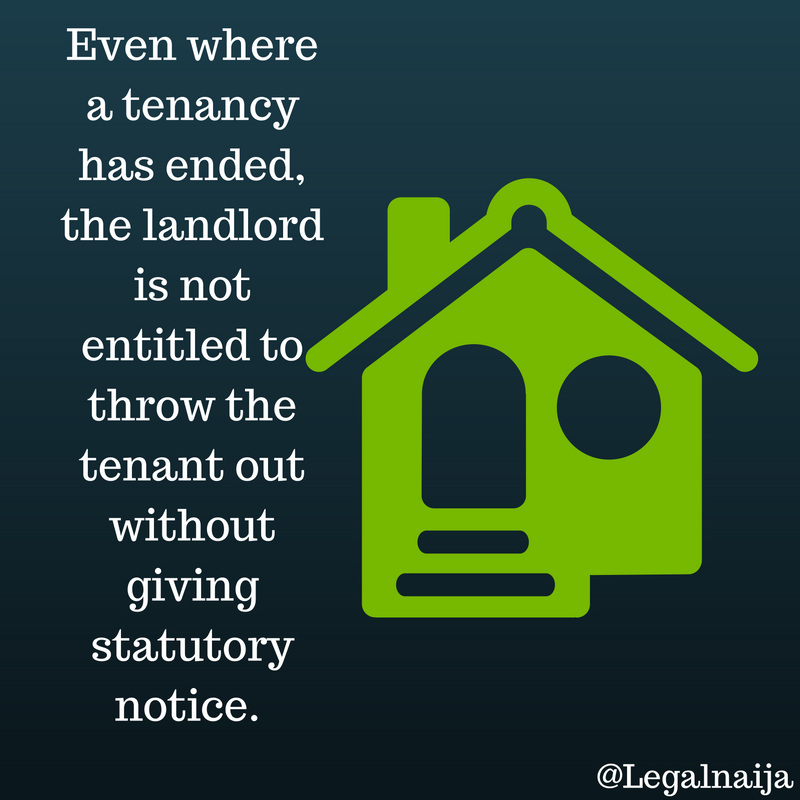AN
INTRODUCTION TO COMPETITION LAW AND POLICY: AN ANALYSIS ON THE FEDERAL
COMPETITION AND CONSUMER PROTECTION BILL. 2015. PROTECTING THE CONSUMER AND
ENLARGING THE MARKET.[1]
In
Market economies, there is inherent danger that market players may distort or
even eliminate competition in order to maximize profits, or in order to acquire
and abuse their market power. This has demanded legislative and policy
intervention and for many countries, such intervention has taken the form of
competition law and policy. In its simplest form, competition law and policy
aims at playing the role of an umpire in what may conveniently be regarded as a
market jungle, where financial might is right and profits can be made by
unscrupulous manufacturers, often at the consumers chagrin.
It
therefore follows that if left unchecked, financially buoyant corporations will
muscle out the financial less fortunate firms, create entry barriers, and
reduce innovation, quality, efficiency and output in the market. This has an
overwhelming effect in the production and distribution channels in the society.
Consumers are forced to pay so much for so little as they are manipulated by
the greed of entrepreneurs and lack of a functional competitive market.
To
allay the consternation of consumers and to protect the market, many countries
around the world have enacted competition laws and designed pro-competitive
policies to meet the many needs of the society at large, as the effect of an
anticompetitive regime has larger ramifications on the society. For instance,
industries will fail to compete in the market, consequently, they will not need
to employ labour as there is no need for expansion in a ‘one way’ market
industry, and they may even be tempted to lay off personnel; these increases
unemployment, inefficiency and by extension, crime rate.
It
therefore becomes imperative for the law to create a benchmark of acceptable
trade practice. This is done by the creation of rules to regulate their
business activities in such a manner that they conform to fair and equal
standards of trade. These rules are known as Competition Laws or Antitrust.
Competition
law is a set of rules, disciplines and judicial decisions maintained by
governments relating either to agreements between firms that restrict
competition or to the concentration or abuse of market power on the part of
private firms.[2] These laws prohibit the misuse of market powers by firms and
businesses. For instance, preventing undertakings which are dominant in their
markets from overcharging their customers or imposing unfair trading terms and
conditions upon them.[3]
Competition
law authorizes and regulates government intervention against anticompetitive
behavior, such as price fixing and price rigging, and the concentration of
economic power. When the law succeeds in safeguarding or increasing marketing
competition, such that both buyers and sellers are generally price-takers, it
brings widely economic benefits, boosting economic efficiency, growth and
innovation and thus, both consumer and aggregate welfare.[4]
In
a similar vein, Bob Lane defines competition as “the struggle by firms to
achieve superiority over other firms in the market place” and further defines
competition law as “the rules limiting the freedom by which they may do so”.[5]
The
lack of Competition legislation in Nigeria has been described as the reason why
producers of utilities do not feel obligated to answer the queries of the
consumers. There are sectorial regulations in some industries but this only
raise the question of how enforceable are these regulations and do they really
live up to their billing and hype? This has prompted the Government to send a
proposed bill to the national assembly to pass same and create some balance and
accountability in these sectors. Another role to be played by a competition
regulation is to eliminate entry barriers in certain businesses and encourage
new players in the market: such entry will naturally create competition and the
consumer will undoubtedly be the king of the market.
The
Bill is an Act which aims at repealing the Consumer Protection Act, CAP C25,
LFN, 2004; Establish the Federal Competition and Consumer Protection Tribunal
for the development and promotion of Fair, efficient and Competitive Markets in
the Nigerian economy, facilitate access by all citizens to safe products,
secure the protection of rights for all consumers in Nigeria and for other
related matters.[6]
The
objectives of the proposed Act are to promote and maintain competitive markets
in the Nigerian economy,[7] promote economic efficiency,[8] protect and promote
the interest and welfare of consumers by providing consumers with competitive
prices and product choices. The bill further seeks to prohibit restrictive
business practices which prevents, restricts or distorts competition or
constitutes an abuse of a dominant position of market power in Nigeria; and
contribute to the sustainable development of the Nigerian economy. The Act is
applicable to all undertakings and all commercial activities within, or having
effect within Nigeria.[9]
Establishment
of the Federal Competition and Consumer Protection Commission;
The
Act establishes the Federal Competition and Consumer Protection Commission
(“the commission”) for the purpose of carrying out the functions, duties and
responsibilities as conferred upon it by virtue of the provisions of the
Act.[10] The Bill provides that the commission shall be independent in the
performance of its functions, duties, powers and responsibilities so conferred
on it. In a bid to ensure fairness and sincerity in purpose, the Bill directs
that any member of the commission who has a personal interest in any contract
or arrangement or matter to be considered by the commission or of a committee
shall forthwith disclose such interest to the commission or committee and shall
not vote on any question relating to the contract, arrangement or matter. This
is in an initiative to forestall a case where a member of a committee has a
conflict of interest and might be minded to manipulate the system to favor such
interest. This provision seeks to ensure objectivity among the members of the
commission.
Also,
the Act provides for the establishment of a Competition and Consumer Protection
Tribunal.[11] The Tribunal is expected to adjudicate over every conduct
prohibited under the Act. The tribunal shall hear appeals from or review any
decision from the exercise of the powers of any sector specific regulatory
authority in a regulated industry in respect of competition and consumer
protection matters; issue such orders as may be required of it under the Act;
and make any ruling or such other orders as may be necessary or incidental to
the performance of its functions under the Act.[12]
RESTRICTIVE
AGREEMENTS;
The
2015 Bill provides that “Any agreement among undertakings, or the decision of
an association of undertakings that has the purpose of actual or likely effect
of preventing, restricting or distorting competition in any market shall be
unlawful and, subject to Section 61 of this Act, void and of no legal
effect whatsoever”.[13] This is a strong stand against any form of restrictive
trade practice among associations, cartels or any commercial unit.
For
avoidance of doubt, the bill lists out the particular acts to be prohibited by
the proposed Act. They include;
a;
Directly or indirectly fixing a purchase or selling price of goods or services,
this is subject to Section 108 of the Act.
b;
dividing markets by allocating customers, suppliers, territories or specific
types of goods and services.
c;
limiting or controlling the production or distribution of any goods or
services, markets, technical development or investments, subject to Section 109
of the Act.
d;
engaging in collusive tendering, subject to Section 110 of the Act.
e;
making the conclusion of an agreement subject to acceptance by the other
parties of supplementary obligations which by their very nature or according to
commercial usage, have no connection with the subject of such agreement.
The
prohibited acts which contravene certain Sections of the bill have been itemized
for avoidance of doubt by commercial undertakings which have formed the habit
of often using ignorance of the law and the absence of an active antitrust
legislation to breach competitive lines.
In
a related breath, Section 64 prohibits any term or agreement for the sale of
any good or services, if the purport of such term or agreement is to establish
or provide for the establishment of minimum prices to be charged on the resale
of the goods or services in Nigeria. In other words, this Section proscribes
minimum resale price maintenance in the market. It has been identified as a
major trade restrain among experts in antitrust and a major setback in market
competition. Interestingly, the Bill creates a new form of restrictive trade
practice prohibition, where it prohibits the unlawful withholding of products
from a dealer by a supplier.[14] For the purpose of the Act, an undertaking
will be treated as withholding goods or services from a dealer if the
undertaking refuses to supply those goods or services to the order of the
dealer,[15] the undertaking refuses to supply the goods or services to the
dealer except at prices or on terms or conditions as to credit, discount or
other matters which are significantly less favorable than those at or on which
the undertaking normally supplies those goods or services to other dealers
carrying on business in similar circumstances;[16]
ABUSE
OF DOMINANT POSITION[17]
The
2015 Bill goes further to give an elaborate description on instances where a
corporation may be designated as a dominant firm in the market. It provides
that, for the purpose of the Act, a corporation will be considered to be in a
dominant position if it is able to act without taking account of the
reaction of its customers, consumers and competitors.[18] This
definition puts into consideration in defining a dominant firm, the effect the
act of a large firm might have, not only to its competitors, but also on the
consumers and the competitors. Much has been said on the subject in the last
chapter, the argument was made that there is nothing fundamentally wrong with a
firm being a dominant firm in the market. Its status might have been achieved
by dedication to purpose, hard work, investment and goodwill; hence a large
corporation should not be punished for excelling in the market environment. It
has quickly been added, that a large firm, in making decisions and carrying out
its business acts must be extremely considerate and cautious on the effect
(usually adverse) such acts or decisions might have on the consumers, customers
or the competitors in the same market and within the same geographical
location.[19] As a punitive and prohibitive step, the bill provides in Section
74 (3) that any undertaking that abuses its dominant position in the market
commits an offence under the proposed Act and on conviction be liable to a fine
of not less than ten (10) per cent of its turnover in the preceding business
year or such higher percentage as the court may determine under the
circumstances of the particular case.
MONOPOLY[20]
Where
it appears to the commission that there are convincing grounds for believing
that a monopoly situation may exist in relation to the production or
distribution of goods and services of any description or in relation to the
export of any goods and services of any description in Nigeria, it shall cause
an investigation to be held into a particular type of agreement across various
sectors to determine the extent of the situation in relation to the market. The
Bill identifies a situation of monopoly to exist in relation to;
1. the supply of goods of any description’
2. the supply of services of any description,; or
3. the exports of goods of any description from Nigeria,
to the extent that it has an effect on competition in a market in Nigeria.[21]
MERGERS[22]
For
the purpose of the proposed Act, a merger occurs when one or more undertakings
directly or indirectly acquire or establish direct or indirect control over the
whole or part of the business of another undertaking.[23] This control may be
achieved by way of the purchase or the lease of the shares, an interest or
assets of the other undertaking in question, the amalgamation or the
combination with the other undertaking in question, the amalgamation or
combination of the other undertaking in question.[24] It could also be by way
of a joint venture.[25] It is further explained that an undertaking has control
over the business of another undertaking if it beneficially owns more than one
half of the issued share capital or assets of the undertaking; is entitled to
cast a majority of votes that may be cast at the general meeting of the
undertaking or has the ability to control the voting of a majority of those
votes, either directly or indirectly; is able to appoint or to veto the
appointment of the directors of the undertaking. Subject to the notification of
threshold to be determined from time to time as set out in Part XII, a proposed
merger shall not be implemented unless it has first been notified to and
approved by the commission.
Section
95 of the proposed Act provides that when considering a
merger or a proposed merger, the commission shall determine whether or not the
merger is likely to substantially prevent or lessen competition. This shall be
done by assessing the strength of competition in the relevant market and the
probability that the undertakings in the market, after the merger, will behave
competitively or co-operatively, taking into account, any factor that may be
relevant to competition in that market, including, the ease of entry in the
market, the level and trends of collusion, the level of countervailing power in
the market, among other considerations.[26]
CONCLUSION
On
the whole, the bill looks promising and all-encompassing, it touches on both
competition regulations as well as consumer protection, and the danger however
remains in the management of the commission if by chance the bill is passed
into law. The commission will need to be manned by professionals who are
knowledgeable in antitrust laws, economics, intellectual property and
representatives of the various sectors of production. It is essential that all
necessary bodies are carried along for a productive dispensation of competition
policy in Nigeria.
That
competition law and policy has continued to enjoy a remarkable growth rate
across the world in recent times need no lengthy discussion. Its advantages
have been seen to cut across economic efficiency, consumer choice boost and
protection, removal of entry and exit barriers, protection of small and
intermediate firms in the market, improvement of the foreign direct investments
(FDI) of countries, while boosting the chances of local firms to compete
internationally. This work has therefore argued that, left unchecked, the
untoward and unregulated trade practices will continually relegate Nigerian
markets to the background and have extremely adverse effects towards the
economic and trade development and growth in the country.
RECOMMENDATIONS
The
first step to take is to harmonize all pending Bills before the National
Assembly, remove offensive sections contained in the Bills[27] and create
independent enforcement institutions. The Bills were products of legal
transplants which did not necessary take the peculiarities of Nigeria trade and
market system into consideration.
Competition
policy and law offers developing nations an added tool to manage their affairs.
The challenge then is to design a competition policy that fits local realities
and meets local needs. This is an aspect that often deludes the attention of
many enthusiastic proponents of competition law and policy.
Evidently
a “one size fits all” approach is practically inappropriate in developing
competition policy and law. It is essential to create a distinction between
countries at low levels of development and hence meager institutional capacity
on one hand, and semi-industrialized countries with greater institutional
capacity on the other hand.
Second,
for competition law and policy to make any meaningful success in Nigeria,
allied policies such as privatization, liberalization and commercialization
have to be placed on the front burner. Their functional existence shall ease up
the market system and usher in competition law and policy. Otherwise it would
only make a mockery of the process.
Third,
any eventual competition law and policy must be wary of falling into the
temptation of inundating itself with too many competition goals and objective.
Much has been said about the lack of infrastructural capacity and structural
facilities in the country, thus, blindly transplanting the U.S. Antitrust in
its entirety or the U.K. Competition Act will be delirious and quite
wasteful. The E.U. Competition law is recommended to the extent that it
advocates for opening up of markets. For a country like Nigeria, operating
Cartel is not so significant and may not necessarily be an objective of the
competition law, in its stead, emphasis may be laid on the extermination of
monopoly, opening up the cement industry for example, focusing on merger activities,
and abuse of dominance in significant public services such as power,
agriculture, shelter, flood, water and other sectors.
Fourth,
Government’s fettering of competition process must be cautioned by law. Due to
vested interest in the markets, and owing to the outrageous level of greed and
corruption in developing countries, governments seem to protect the producers,
(from where their campaign funds emanate from) instead of the consumers. A
major reason why competition regimes have not seen the light of day in Nigeria
is because the government lacks genuine incentives to create a competitive
environment. Most political office holders, legislative members and other
public office holders have vested interests in the thriving monopolies ranging
from the power sector to the various production industries, water supply and
importation activities. The Federal government needs to provide overall
direction for the development competition in Nigeria. This may include
employing capable personnel in the implementation process.
Fifth,
there is need to intensify on competition law and policy advocacy in the polity
about the benefits inherent in the regime. The markets are perishing due to
lack of knowledge of this importation subject. Even worse is the fact that the
legislature, which is on the front seat to bring to life this budding Bill,
lacks any appreciable knowledge of competition law and policy. It was reported
that one of the reasons why the Federal Competition Bill was not sent for the
second reading was because the National Assembly were of the opinion that the
country already had a consumer protection agency. It is therefore recommended
that a crash course seminar be provided for the public to sensitize them on the
imperatives and benefits of this global trend.
The
fact that competition policy should contribute towards economic development is
more or less an agreed concept, it is largely the barriers to competition that
exist that are sources of apprehension. There is need therefore, for
competition culture to prevail in the whole economy to remove distortions. This
should start at the helm of administration before it can cascade to the
consumer.
Political
will turns out to be one of the key factors that determine the success of
implementation of competition policy and laws. If competition law and policy is
to yield all the envisaged benefits, political will and consensus for reform is
a necessary condition.
[1]
The Federal Competition and Consumer Protection Bill 2015 SB 544
(Executive Bill)
[2]
Dimgba. N. 2008. The Needs and Challenges to the Establishment of a
Competition Law Regime in Nigeria. Ibid. P.4.
[3]
Green, N., Hartley, T.C., Usher, J.A. 1991 Single European Market. Oxford
University Press, New York. P.207. the authors further defined competition laws
as that (which) prohibit undertakings from getting together to fix the prices
they will charge their customers.
[4]
Buthe, T.,2014 The politics of Market Competition: Trade and Antitrust in a
Global Economy. Ed. by Martin, L. Oxford handbook of the Politics of
International Trade. Gellorn, Kovacic and Calkins are other authors who have
been persuaded to view the roles and effects of Competition law from the same
perspective. See their book: Antitrust Law and Economy in a Nutshell. 2004. 5th
ed. St. Paul, MN: West Publishing.
[5]
Lane, B. 2000. EC Competition Law. Longman, Harlowe et al, P. 6
[6]
See the preamble of the Bill.
[7]
Section 1 (a)
[8]
Section 1 (b)
[9]
Section 1 (c) & (d)
[10]
Section 3 (1)
[11]
See Section 39 of the Bill.
[12]
Section 48
[13]
Section 60, Part viii
[14]
See Section 67
[15]
Section 67 (1)[a]
[16]
Section 67 (1)[b]
[17]
Part IX Section 71
[18]
Ibid
[19]
Section 73 (1) of the proposed Act list the considerations necessary in
decided the dominance of a firm.
[20]
Part X, Section 77
[21]
Section 78
[22]
Part Xii, Section 93
[23]
Section 93 (1) [a]
[24]
Ibid, [b]
[25]
Ibid (b)[iii]
[26]
See generally, Section 95.
[27]
These provisions include:
1. Empowering the Ministers of Justice and Trade
unregulated powers to interfere with the activities of the Commission’
2. ‘Tying’ the funds of the enforcement institutions to
the governments account. This shows insecurity of purpose,
3. Fusing the goals of the Laws together, without any
direction as to the objectives of the Laws.
Oluyori Ehimony Jr.
Yori
is a lawyer with a very high premium for excellence, intensely focused on
solving client’s most important problems with a diverse practice skillset. He
also possess the ability to team effectively with clients and associates. Yori
has gained considerable experience in Commercial litigation, Antitrust/
Competition law, Mergers and Acquisitions, Corporate and general legal
practice. He is building a track record of original and groundbreaking
solutions and innovations that have a dramatic impact on business and law.
Ed’s
Note – This article was originally published here.


 Prince-Alex Iwu is an associate at Aelex Legal Practitioners & Arbitrators
Prince-Alex Iwu is an associate at Aelex Legal Practitioners & Arbitrators















